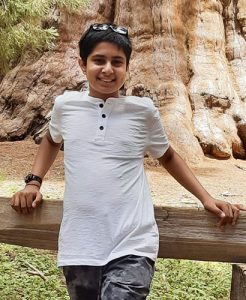Why Research?
Research is often the first, independent, and self-driven academic activity students can undergo.
Research experience allows students to better understand published work, learn to balance collaborative and individual work, determine an area of interest, and jumpstart their careers as researchers. Through exposure to research, many students discover their passion for science and math and continue pursuing it in undergraduate studies and TA/RA positions.
Research is often performed in teams, and one must learn to balance a collaborative effort in the laboratory with what one is capable of accomplishing independently. The nature of research today is such that interdisciplinary teams are becoming the norm, and gaining first-hand experience in teamwork is promoted in undergraduate education.
Today’s leading jobs, such as those in machine learning and artificial intelligence, are purely research-driven.
Build on Core Knowledge
– Learn the skills and competencies required to conduct cutting-edge research.
– Train in an ongoing series of lectures, training workshops, and seminars, all available online and recorded.
– Training is enforced with consistent and constant feedback from leading researchers in their fields.
Apply New Skills
Reinforce new knowledge by participating in three amazing opportunities:
– Publishing: Students will receive individual guidance in using their work to apply for research grants and publications. They will receive special status when applying to the TLPS education journal: Transitions in Global Education.
– Conferences: Students will have opportunities to attend and showcase their work in a variety of diverse conferences.
– Internship: In addition to applying new skills to their research projects, students will also be able to join an ongoing high-level professional research project led by the Mathematical Association of America. Students can receive credit and co-authorship on the various publications and conferences that this project produces.
Tentative Timeline
– January – Program Starts: The first course in the lecture series, Research Methodology, begins.
– March – Draft of Research Project: An initial draft of a student’s research work should be complete. Students should also have started work as an RA.
– June – Conference Registration: Students should be starting the third course in the lecture series, Research Presentation. They should also have registered for at least one conference and finished a full abstract proposal.
– September – Final Research Project: Students should have finished a final draft of their research project and begun applying for publication and presentation. They should have also received co-authorship for their work in the MAA project.
– December – Publication: Research project finalized. Students should have now gotten their work accepted into a research journal.










